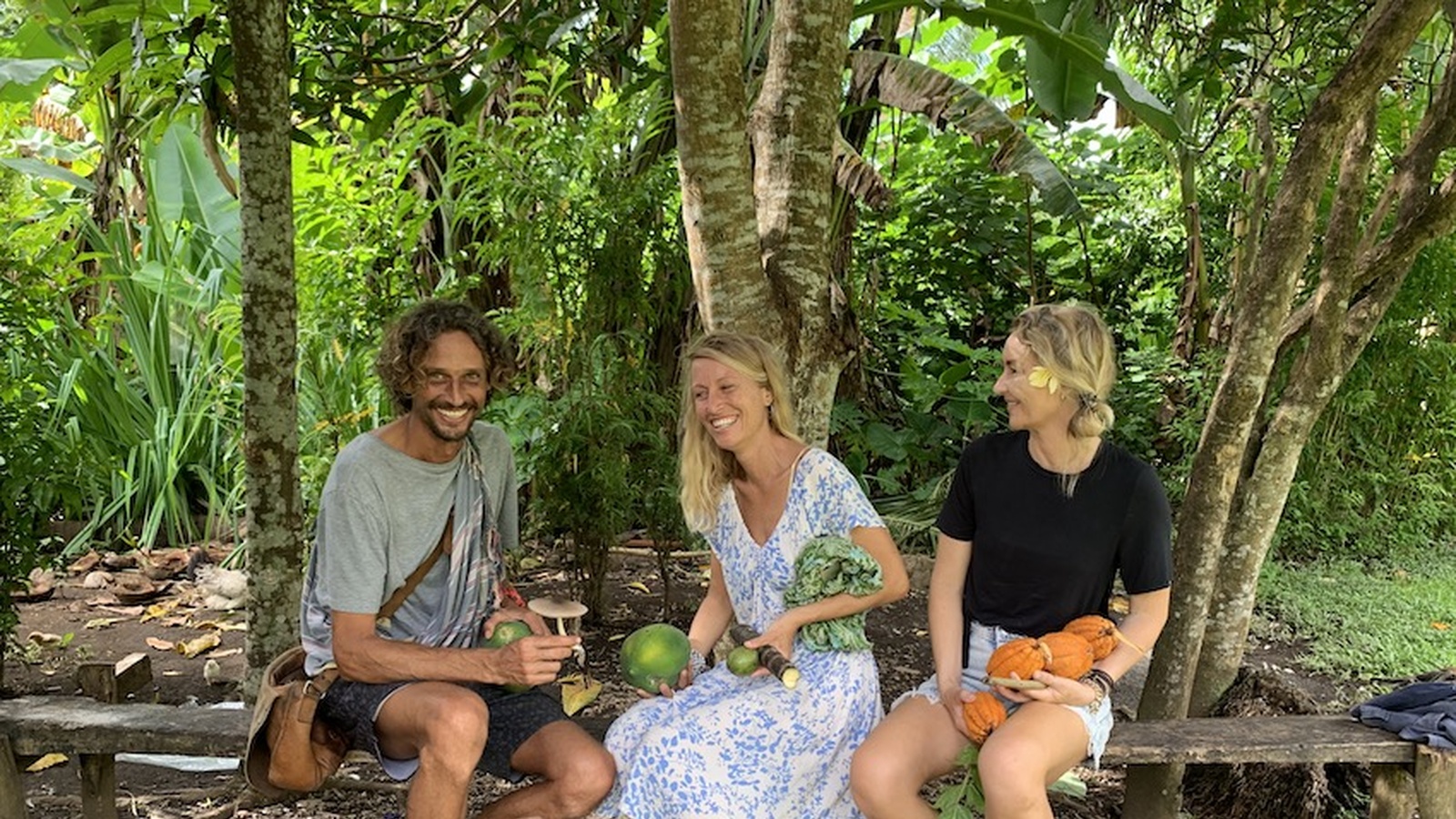What I Discovered In Vanuatu’s Outer Islands
As a child, my family and I had the incredible opportunity to move out to Vanuatu, which couldn’t have been further from my home in Europe; both in distance and in culture. Those years spent on these beautiful islands helped to shape me into the person that I am today, and I wanted to bring my family up with the same experiences, exploring and understanding the value of different cultures around the world.
What I have re-learned in Vanuatu in recent years has been somewhat surprising, but it has also confirmed that we have been on the right track for all of these years with our Food Matters mission. While we live among the bustling hub of Port Vila, what I discovered in Vanuatu’s outer islands was truly breathtaking.
A Remarkable COVID Response
Vanuatu is one of the only countries in the world that is COVID-free. Some may consider their measures harsh, with a total border lockdown, but the government here has truly done such an incredible job of keeping it’s people safe. We feel very lucky to be here!
Because Vanuatu typically has such a large tourism industry, which isn’t surprising considering how beautiful it is, locals have found these lockdowns challenging too. Many people often move from the smaller outer islands to the bustling capital of Port Vila, for work opportunities within the industry. But as COVID hit and food supplies diminished, the government encouraged everyone to return home to their villages in the outer islands, and they provided free transports and free trees and seeds to help feed the community. Here’s why...
Garden Harvests Take Centrestage
The people of Vanuatu intrinsically know how to live off the land - it’s how they’ve lived for centuries. Their communities are built around these large gardens, around the ideas of sharing and trading, and living in harmony with one another. It’s something that I’ve always witnessed, but when traveling to the outer islands with my friends returning home, I truly got to experience how profound this is.
Collectively, the communities work with gardens that are often a long trek from their homes, but these gardens are plots of land that are passed down through generations, where everyone plants and harvests the local foods that are in season. I saw lots of wild yam, water taro, natural sugar cane, bananas, and island spinach. Even from a young age, the children are taught to partake in communal gardening, and as a result, they’re growing up with a deep understanding and appreciation for the healthy, wholesome foods that they are eating.
Community-Centric Approach To Healthcare
Something else that caught my eye on my travels was how people living in the outer islands approach their model of healthcare. I wanted to truly see the people, what they eat, how they live, and the medicines they use, and this part perhaps shocked me the most. In Port Vila, a Western approach to medicine has been adopted, and a traditional approach to healthcare has been disregarded. But by venturing into these closer-knit communities, I witnessed a more natural, holistic approach to medicine and treating illness, where ancient knowledge had been passed down through practice. They embody a beautiful knowledge of plant medicine, and provide preventative care, especially as the outer islands are often so inaccessible. Leaves are squeezed and used to treat cuts, bark is mashed and used as a bandage, pawpaw leaf is boiled and used for flu - our ability to heal within nature is truly remarkable.
Connecting To The Earth
Have you ever practiced grounding? It’s a concept in the wellness community that involves walking barefoot on the earth to help remove negative charges in your body. It’s a practice that I’ve witnessed many times in my years with Food Matters, but as I ventured to the outer islands of Vanuatu with my friends, I had the opportunity to embrace this process. For days on end, I walked barefoot. I stayed with communities in their beautiful but humble homes, slept on mats on the ground, and on the treks between the villages I walked barefoot.
I think somehow I may have even become more of a spiritual person. To truly experience these outer islands, you have to walk barefoot. You have to connect with the land. So I spent three days walking barefoot, wading through beautiful pristine rivers and waterfalls, and I am so proud of myself.
Growing your own foods, embracing plant medicine, connecting with the earth… These were all the things I had spent so many years learning and teaching about. And these beautiful communities living in the outer islands have been thriving with these practices since the beginning of time.
If you’ve been watching along with our latest series, Wild & Free: A Year on a Tropical Island, you will have seen firsthand how incredible island life is. This was the inspiration for opening Nambanga Nature School, a project inspired to help support the local villages and further the Food Matters philosophy of supporting indigenous education. You may have discovered the school as part of our fundraiser campaign. The build is currently underway and we will be back with an update soon x
If you want to follow along with our adventures on a tropical island, be sure to discover all 10 episodes of Wild & Free. Stay tuned for more updates, and let us know what you’re doing in the comments below to make your life a little more wild and free...
If you haven’t already, join our free global challenge at www.GetOffTheGluten.com to receive daily recipes & health tips, access to our private group for support and inspiration, plus before and after testing to track your progress in key areas of your life such as weight, sleep, bloating, skin-conditions, mental health and more!


